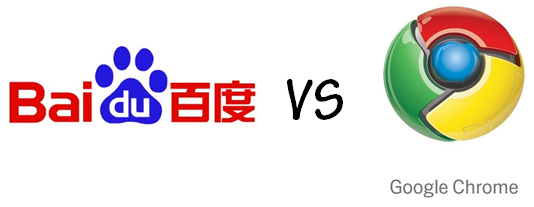
Google Chrome OS is one of the greatest inventions ever created by the folks at the search engine giant. Announced on July this year, the new Google Chrome OS will feature a small, fast-booting platform, which enables web users to get hook up to the web within a few seconds. For example, you’re able to gain access to Google’s apps or web services without any hassle or worry about viruses, malware and security updates. The Google Chrome OS team plans to open source the project and will be available for consumers in the second half of 2010 at no cost. Upon hearing this piece of news, some people sang praises whereas the rest still prefer to use traditional operating systems such as Windows or Mac.
Despite being “one of the hottest topics” on the world wide web this year, but that didn’t stop China’s largest search engine – Baidu, from developing an OS similar to Google Chrome OS. According to Wall Street Journal’s interview with Robin Li, CEO of the NASDAQ-listed company, Baidu plans to penetrate into the OS market by building an OS to suit the growing netbook market. He said that it is currently in development.
Here are some predictions of what Baidu will do for its OS:
Feature 1: Value-Added Online Services
The original ideas of Chrome OS are quite good, but the missing point is obvious. Just like Google itself, Chrome OS does not have a mature business model. Unlike Google, Baidu is ready for businesses since it operates its online marketing service (paid search) through a P4P (Pay for Performance) platform. I think in Baidu’s OS, the Chinese search engine leader will release a set of services that will charge users.
This isn’t like any typical premium services. It’s something that suits the Chinese market (or all developing country markets), Baidu will do something like Tencent, such as charging for customized stuff, extra storage, etc.
Feature 2: Combination with Social Web
Baidu entered almost all Internet eras, except for the social web. How can the search engine giant miss such a popular market! This might caused by poor management in planning or some other reasons. But anyway, Baidu’s OS is a good chance for catching up with the trends.
Currently, Chinese people are getting stickier to social networking websites, such as Kaixin001.com and RenRen.com. These websites have gained lots of traffic from white-collar workers and students respectively. Giant news portals such as Sina and Sohu failed in social web, and in contrast, Tencent is obviously the clear winner of social client computing because of QQ – the most famous IM in China. Baidu never wants to lose in the social web competition, so most likely Baidu’s OS will be an important tool for Baidu to win.
Feature 3: Box Computing Client
A few weeks ago, Baidu released its own concept called Box Computing. Different from Cloud Computing, it’s no longer Architecture-based, but it’s Application-based. Box Computing provides only a text field for users, but with the strong apps behind, the servers will compute and return the best results based on user’s criteria instantaneously.
Box Computing is the new generation of search engine technology, and it makes use of the simplicity of search engine but to emerge various applications behind it. It’s something similar to WolframAlpha, but more common and social. We can easily imagine that Baidu’s OS will become the entrance to such a wonderful computing world.
Limitations
I never talk about features without limitations, of course, there will be some problems for Baidu to solve. At here, I will talk about the most crucial one – Internationalization.
Baidu is a Chinese company, and it has only entered the Chinese and Japanese market. How about the more advanced countries such as the United States or United Kingdom? Currently, there is no Chinese Internet companies can become a giant internationally, and Baidu also has to face many challenges. The concept of Box Computing is quite innovative, but without developers from all over the world, it will be caught up by companies like Google even if they only imitate. No matter how strong and popular Baidu is in China, it really worth nothing in other countries.
In conclusion, Baidu’s Operating System is really expected, but I don’t want to see that such a wonderful platform can only be popular in China. Baidu should study International trends more and attempt in entering International Internet Market. More effectively, Baidu can even acquire some second-level International Internet companies like About.com and Twitter. I hope Baidu can finally solve Internationalization problem and build a useful OS for everyone.
Wall Street Journal’s interview with Robin Li